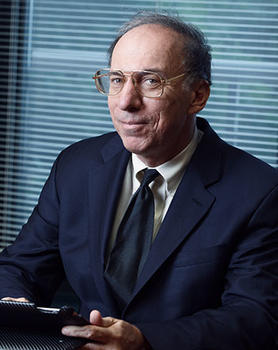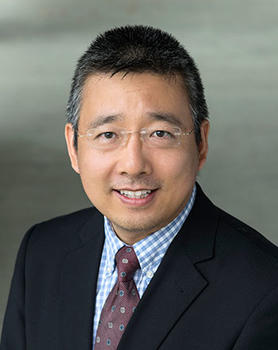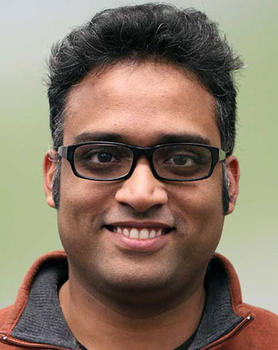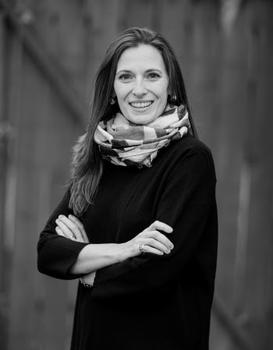George Mason University School of Business boasts more than 60 full-time, research-active faculty across the accounting, finance, information systems and operations management, management, and marketing areas. In addition to pursuing research questions within their area of specialty, many School of Business scholars team up with peers from other disciplines to tackle complex societal problems.
These include so-called “wicked problems”, e.g. climate change and inequality, that require coordinated interventions because of their multifaceted nature.
Rich Klimoski, School of Business associate dean for research, says, “Business schools do in fact have multidisciplinary roots and are often composed of faculty that can apply expertise from diverse areas of study, including economics, mathematics, statistics, psychology, sociology, law, and others.
“Moreover, because big societal and economic challenges and opportunities are multidisciplinary in nature, business schools are uniquely prepared to contribute to understanding and solving these problems via research.”
Here are just a few examples of how SBUS professors are elevating their real-world impact through multidisciplinary collaboration.

J.P. Auffret directs research partnerships for the School of Business, and the Center for Assurance Research and Engineering (CARE), housed in the College of Engineering and Computing. He will also co-lead (with computer science professor Amarda Shehu) the future Center for Excellence in Government Cybersecurity Risk Management and Resilience, which was founded with significant support from U.S. Representative Gerry Connolly, whose congressional district includes Fairfax, Virginia.
To be headquartered in Mason Square, this Center-to-be will support and advance cybersecurity leadership and governance across the U.S. federal government by educating executives and middle managers, acting as a strategic partner in cybersecurity and IT modernization efforts, translating state-of-the-art research into federal government practice, collating and disseminating best practices for cybersecurity, and fostering cybersecurity organizational capacity.
Additionally, Auffret is furthering his long-standing local government cybersecurity partnering initiative which originally started as a National Science Foundation project with Virginia Tech professor Angelos Stavrou. As he explains, “Many local governments are quite small, and have limited budgets and resources while facing many of the same cybersecurity technology and organizational challenges as larger local governments. Partnering between local governments and with the states provides a means for enhancing cybersecurity capabilities."

Lei Gao, an associate professor of finance, contributes to several multidisciplinary research projects at various funding stages. One proposal, aimed at curbing gun violence, has Gao working alongside researchers from the fields of computer science, statistics and criminology. The team intends to use machine learning and other advanced technologies to discover leading indicators of mass shootings. Gao’s role relates to the economic piece of the puzzle, exploring questions such as whether localized or national economic downturns may be a precursor to mass shootings. “We might be able to provide some insights or early warnings for law enforcement to detect or forecast so that they can go there earlier and try to prevent these tragedies,” Gao says. He is also interested in what happens after mass shootings occur. “When gun violence occurs in a particular area, it can significantly decrease the attractiveness of the area to new businesses and talented individuals, leading to reduced tax revenues and economic consequences. By quantifying these costs, the public can better understand the costs of inaction on gun violence,” Gao says.

Abhishek Ray, an assistant professor of information systems, has teamed up with a Mason economics professor on a project investigating the online news market. The proposal jumps off from the idea that while democracy depends upon a well-informed citizenry, the internet is known for shunting users into “echo chambers” that reinforce pre-existing political biases. Using innovative techniques from “complex systems science for investigating economic activities and cognition in markets”, Ray aims to show how competition within the news industry drives the political polarization of journalism, and how these shifting levels of bias affect reader engagement. “Digital news has impacted consumers’ political involvement and information-seeking more profoundly than other media,” Ray explains. “This project will design mitigating regulatory frameworks using economics, computational and cognitive science.”

Sarah Wittman, an assistant professor of management, and faculty from Mason’s Volgenau School of Engineering are developing wearable technologies to empower people with various types of neurodiversity–Autism spectrum disorders, ADHD, etc.–to thrive at work. The project focuses on the retail and hospitality industries, where employment opportunities for neurodiverse people abound. Yet aspects of working life, such as the need to interact with others and complete tasks in a specific order, are frequently problematic for many in these communities. Wearables provide real-time biometric monitoring and simple interventions–e.g., encouraging the wearer to take a five-minute break when their heart rate rises to indicate frustration or agitation. By helping remove obstacles to gainful employment, these devices would create greater financial and emotional independence for the neurodiverse population.
While not a complete list, these examples help illustrate how School of Business scholars are breaking siloes to address problems of national, if not global import. As Klimoski states, “I am absolutely convinced that the kinds of research that will have the greatest likelihood of making an impact upon the world will require the coordination and collaboration of multiple teams made up of researchers from many different disciplines.”
